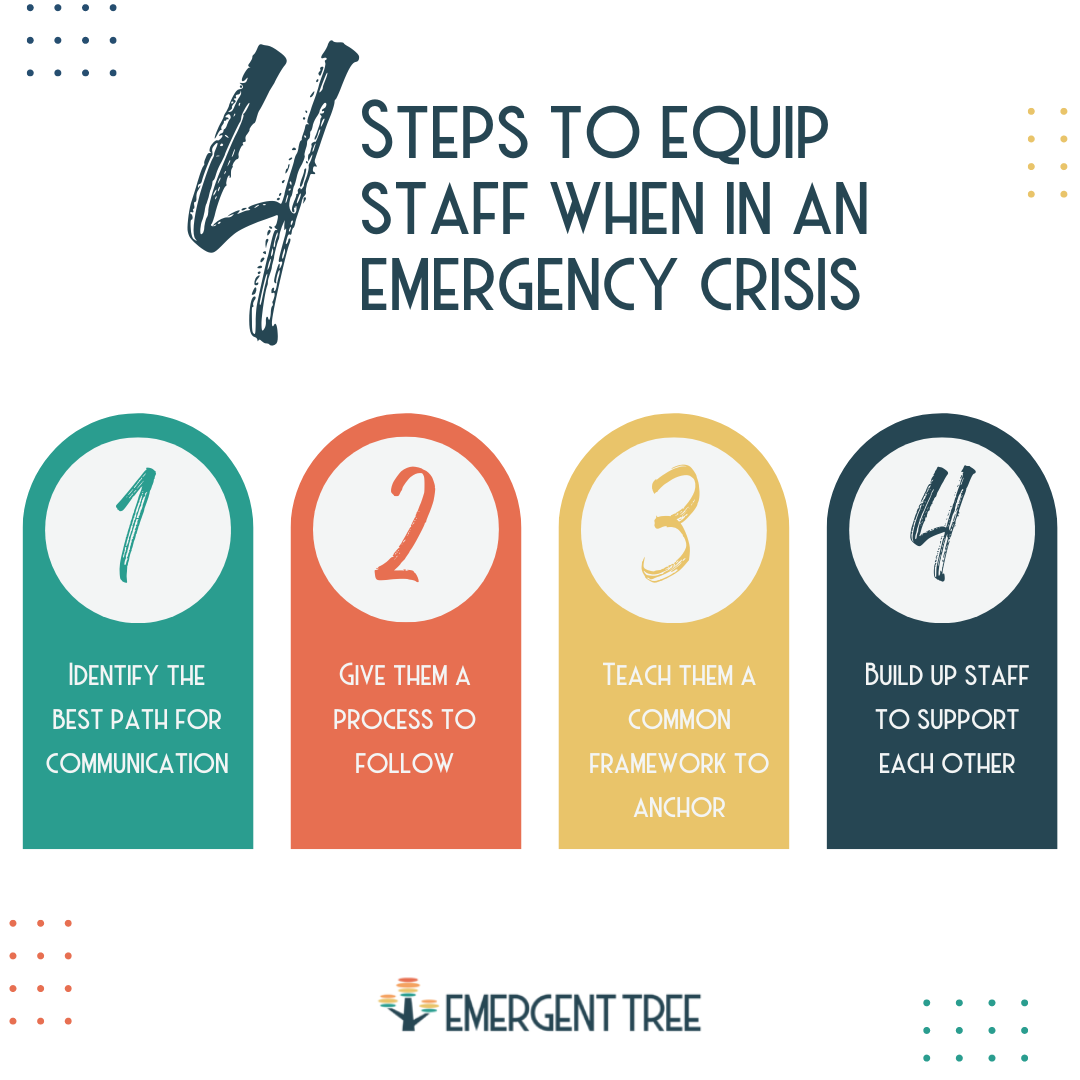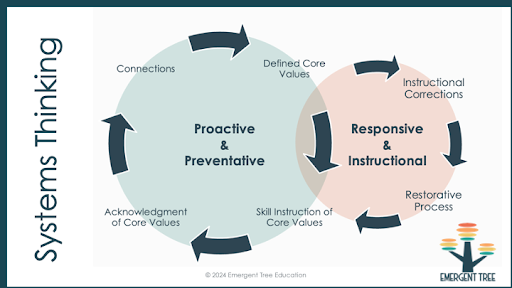Let's Go Farming Instead of Fighting Fires:
Expanding Capacity with Proactive & Preventative Supports
If we were to pull out our trusty dictionary and look up the word capacity, we’d see some descriptions that maybe all of us are craving these days:
- the ability to receive or contain
- power of receiving impressions, knowledge, etc.; mental ability
- actual or potential ability to perform, yield, or withstand
- quality or state of being susceptible to a given treatment or action
We all want to be able to have more capacity in our lives. “Power to receive…” “Ability to withstand…” As education professionals, we often find ourselves at our capacity, though. We might topple over if we add one more thing to our plate. We also know that being able to learn means we have the capacity to engage with and nurture what comes our way.
If you sit in the Behavior Specialist role, you may feel like you pull on your firefighter attire each day, strap on your helmet, and charge toward flames all day. Let’s face it: none of us want to come home smelling like smoke and with charred clothes.
Do you find yourself stretched beyond your limits and unable to fully support all the campuses that have need? Are you running around responding to fires? Trying to get ahead but have yet to get there? Crisis and triage are your normal rhythm. And those few moments where you get to dream, you think, “What if we could do this better?”
We’ve found at Emergent Tree that one of the key things that can support Behavior Specialists is equipping teachers and staff with constructive action steps to engage when faced with a crisis. If everyone works from a common framework to anchor to, teachers and staff can start to troubleshoot and identify the situation or challenge more fully on their own. This creates proactive supports and resources to use when a “fire” appears.
Let’s imagine that you woke up to commotion outside your house. You take a look out your window and see that your neighbor's house is on fire. How can you safely help the situation until the firefighters arrive? Could you use a fire extinguisher to help keep the flames at bay? A hose you could pull up to put a barrier around the house? Blankets or even hugs you could give to your neighbors?
Something can always be done to help a situation already underway, but despite our firefighting skills, we can't prevent a fire that's already started. Instead, we're left to minimize the impact and assist with repair and recovery.
Now, imagine you are a farmer. You have a systematic process for nurturing and growing your crops. Starting early in the season, you plant your seeds, but that likely isn’t before you use some tools to evaluate the soil, add nutrients, and prepare the land just right. Your many tools are checked and maintained to be reliable when needed. You have your routine and systems to help you be more efficient. A lot of work happens before you see the growth happen, but that proactive work allows the crop to flourish.
How about you? I’d rather ditch the smoke and flames to plant some seeds.
How can you become a farmer instead of a firefighter?
Research has shown that quality professional development and coaching can improve teacher competence and confidence in supporting student behavioral needs. Still, teachers receive minimal access to professional development on behavior and, therefore, need more knowledge and training to apply evidence-based behavioral interventions for individual students in their classes.
The highest impact role for behavioral specialists is designing, training, and supporting multi-tiered models, building capacity in teachers to understand and implement evidence-based behavioral interventions.

Here are some practical things you can start doing to equip staff when an emergency arises:
1. Identify the best path for communication.
Everyone has different tools they prefer to use for communication. Some people prefer text messages to phone calls, phone calls to email, etc. If you create clear instructions for communicating challenges when they arise, situations will flow to you with a structured urgency that you can assess and work through.
2. Give them a process to follow.
The immediate response is often to bring in the Behavior Specialist, but this isn’t always possible. If your staff has a process to work through, they can begin to support the situation until you can get there. We want them to feel equipped to handle the situation and empowered to create forward motion even if the Behavior Specialist isn’t there right away.
3. Teach them a common framework to anchor to with support tools.
Knowledge is power, and we want to give teachers the information and tools to tackle situations that come their way
- Create visuals and flow charts to guide campus actions, putting the knowledge and expertise in your head on paper. Then, the behavior specialist's role shifts to collaborating in the work rather than laying out expectations or generating additional tasks a teacher has to learn and integrate into their routine.
- Leveraging tools like ABC Data collection can give practical ways for the teacher to pause and understand the situation.
- Equip staff with the skill of data analysis so they can own their own behavior assessments, gaining invaluable insights into their students and classroom.
The ultimate goal is for you to be able to support teachers vs. responding to individual crises one at a time.
Living in a proactive and preventative environment gives you the capacity to build connections with your students, be aware of and acknowledge core values, and have the skills to keep learning and understanding your students and environment more fully. Part of your process as a Behavior Specialist is to triage the situation. Safety is paramount, and being able to pause and assess the underlying cause for the emergency and what the need is will allow you to provide a long-term supportive response. Is the situation a skill deficit? Do we need to add in some training or modeling? If you can take a step back, you’ll be able to have a broader perspective to solve the crisis.

Behavior Specialists can be best utilized on their campuses by being intentional farmers and proactively working with campuses to prepare for situations that arise.
- Schedule regular time on campuses for consistency - this lets them know you will consistently be there for them.
- Clarify roles and responsibilities among your team within the district so you can all be focused in the right direction with proactive expectations.
- Carve out time with your team to discuss trends and patterns that are being seen. Evaluate what is happening on your campuses as a whole and how you can better equip them. Look for patterns and trends you can support with skills training and enrichment.
Be present. Prioritize. Be on campus.
As a Behavior Specialist, if I were to give you a core focus as you approach this transition from firefighter to farmer, here’s what it would be: Be present. Prioritize. Be on campus. Every time someone sees you, you don’t want them to think, “What crisis is happening…” right? Schedule predictable time to be on campuses at regular intervals so you can help identify and address concerns on the front end. Check-in with principals and teachers when things are going well to acknowledge their efforts and celebrate their impact. Build relationships and trust with teachers to show you are a resource and support. Invest in their growth and success as teachers, not just during bad days and crises. Be their champion and provide positive feedback on what they are doing right.
Looking for some additional resources for your journey?
- Course: The Heart of Behavior: A Framework for the FBA & BIP Process
- Daily Intervention Routine Trainings:



Comments